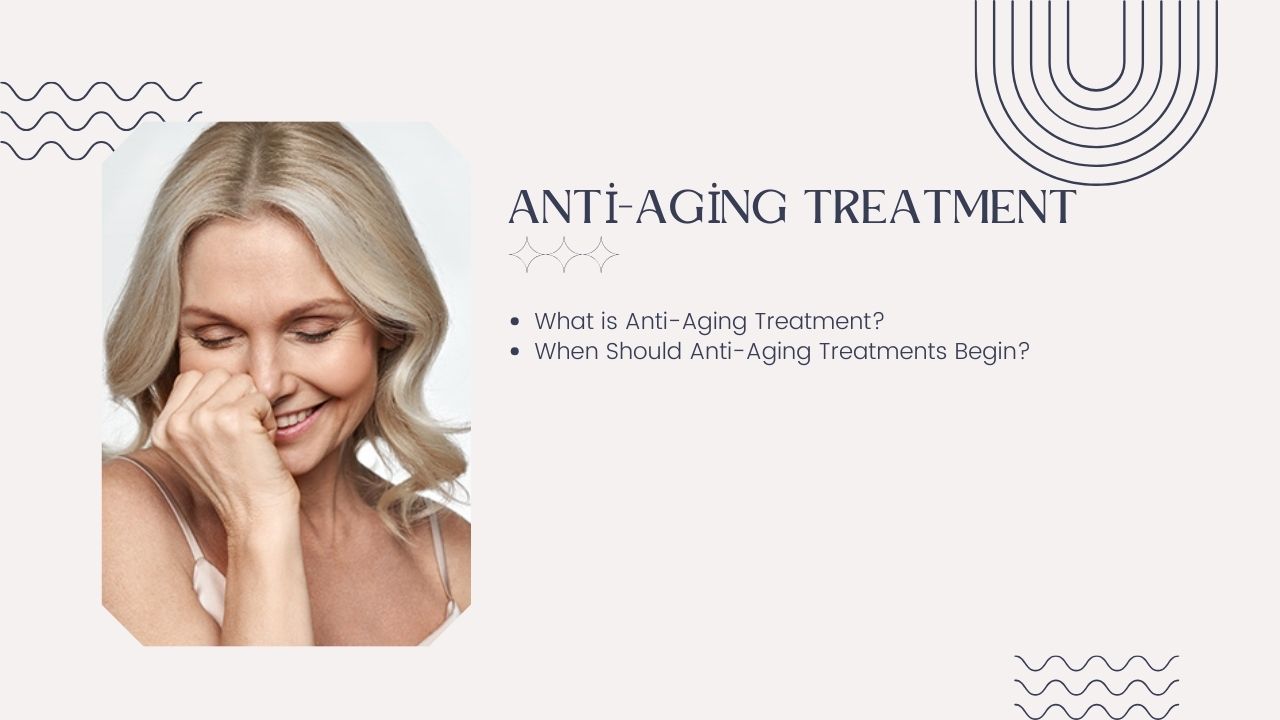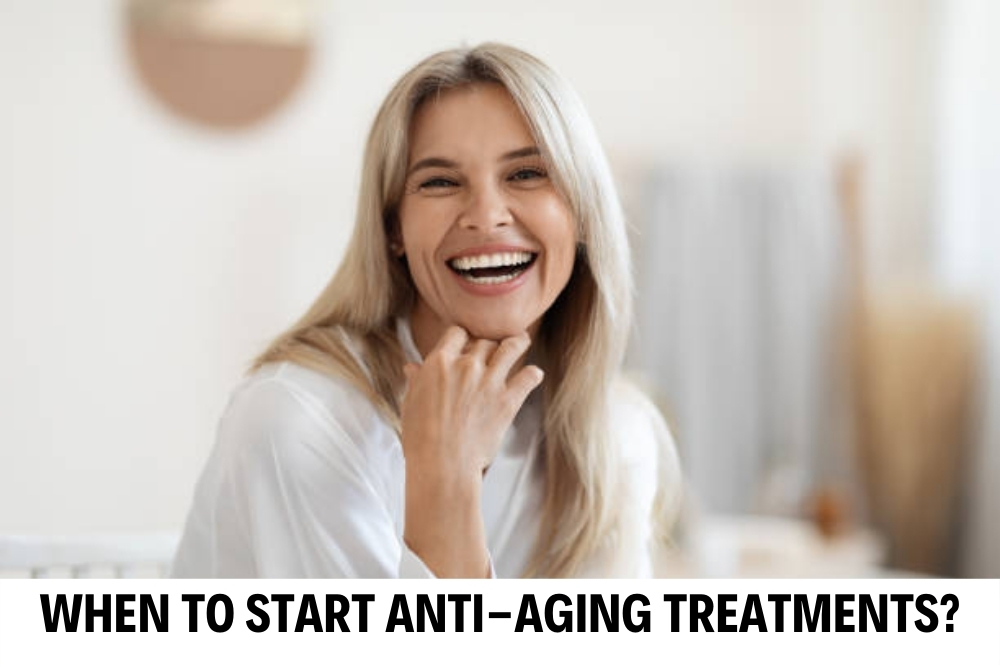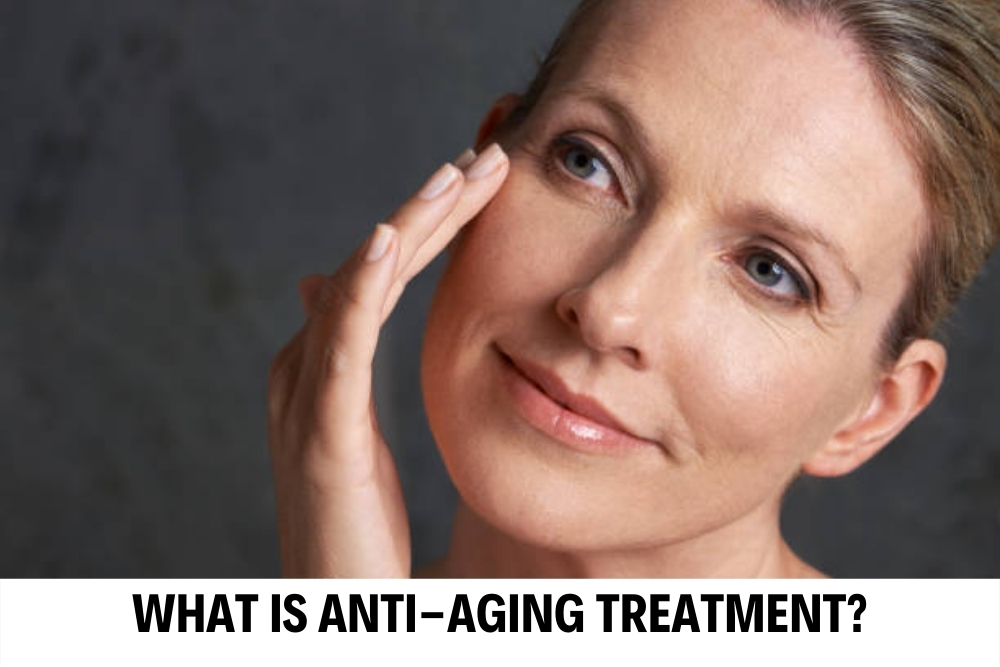Hello,
How Can We Help You?
Contact Form
Fill in the form and we will contact you as quickly as possible.
Contact us on Whatsapp
Scan with your camera app or click the QR code to start a conversation.




Anti-aging refers to various approaches, treatments, and products aimed at slowing down, preventing, and even reversing the natural aging process of the skin. However, as individuals age, the goal is to maintain or improve physical appearance, health, and overall well-being. Anti-aging strategies can encompass various aspects, including:
Skin Care: Anti-aging skincare products such as creams, serums, and lotions. These anti-aging products typically contain ingredients such as retinoids, antioxidants, peptides, and sunscreen. They help protect the skin, reduce wrinkles, and provide a youthful appearance.
Lifestyle: Maintaining a healthy lifestyle, including balanced nutrition, regular exercise, stress management, and adequate sleep. All of these can help slow down the aging process and improve overall health and well-being.
Medical Treatments: Non-invasive or minimally invasive cosmetic procedures such as botulinum toxin, dermal fillers, laser treatments, and chemical peels. These can also help reduce signs of aging such as wrinkles, fine lines, and age spots.
Hormone Therapy: Some anti-aging approaches include hormone replacement therapy, which addresses age-related hormonal imbalances that can contribute to various health issues and accelerate aging.
Supplements: Nutritional supplements containing antioxidants, vitamins, and minerals. They are used to combat free radicals and oxidative stress, which can contribute to aging.
Regenerative Medicine: Innovative treatment modalities aiming to potentially reverse age-related decline by repairing or replacing damaged cells and tissues.
It's important to note that the effectiveness of anti-aging treatments and products may vary. Some may have limited scientific evidence to support their claims. It's recommended to consult a healthcare professional before undergoing any anti-aging intervention.

The appropriate time to start anti-aging treatments depends on individual factors such as genetics, skin type, and lifestyle habits. However, a general guideline is to start preventive measures and treatments from the mid-20s to the early 30s. This is because the body's production of collagen, elastin, and hyaluronic acid, which contribute to the skin's elasticity and hydration, begins to decline around this time.
Some steps to consider when starting an anti-aging routine include:
Sun Protection: Use broad-spectrum sunscreen with at least SPF 30 daily to protect your skin from harmful UVA and UVB rays that contribute to premature aging.
Skin Care: Adopt a consistent skincare routine with gentle cleansers, moisturizers, eye creams, and exfoliants to promote skin rejuvenation. Gradually incorporate anti-aging ingredients such as retinoids, antioxidants (e.g., vitamin C), peptides, and alpha hydroxy acids (AHAs) to improve skin cell turnover.
Healthy Lifestyle: Maintain a diet rich in antioxidants, vitamins, and minerals. Exercise regularly, manage stress, and ensure adequate sleep to support overall skin health and well-being.
Professional Treatments: Consult a dermatologist or skincare specialist to assess your skin and recommend appropriate treatments or anti-aging procedures tailored to your needs and age. This may include chemical peels, microdermabrasion, or laser therapy.
Routine Check-ups: Regularly visit a dermatologist or skincare specialist to monitor the condition of your skin and adjust your anti-aging routine as needed.
Remember that prevention and early intervention are crucial for slowing down aging. The earlier you start taking care of your skin and overall health, the more effective your anti-aging efforts will be. However, it's never too late to adopt a healthy lifestyle and skincare routine to support aging gracefully.
Keep in mind that exposure to the sun can damage your skin tone, leading to dark spots and fine lines, wrinkles. Especially, sensitive skin can develop deeper damages than other skin types. Therefore, it's important to consult a dermatologist or skincare specialist to monitor your skin condition.
We'd love to hear from you. Please fill out the form.
Contact Form
Fill in the form and we will contact you as quickly as possible.
Contact us on Whatsapp
Scan with your camera app or click the QR code to start a conversation.